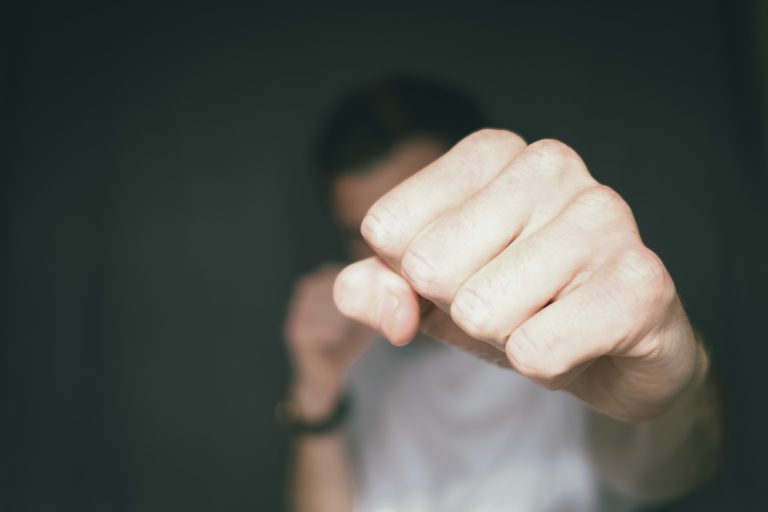Can Karate Help with Depression? Understanding the Connection
Depression is a serious mental health condition that affects millions of people worldwide. While there are various treatments available, including therapy and medication, some people turn to alternative forms of therapy like karate to help improve their mental health. In this article, we’ll explore the connection between karate and depression, and whether it can be a helpful treatment option.
Karate and Its Benefits
Karate is an ancient martial art that originated in Okinawa, Japan, and has since become a popular form of physical exercise and self-defense across the world. Karate as an exercise and therapy option has numerous benefits that may help with depression. These benefits include:
Physical Exercise
Physical exercise is essential for overall well-being, and it’s no secret that exercising regularly has numerous benefits for mental health. Karate is an intense cardiovascular workout that helps release feel-good endorphins that can ease depression symptoms. Moreover, exercising has been shown to reduce the level of chemicals such as cortisol and adrenaline that are responsible for feelings of stress and anxiety.
Discipline and Structure
Karate is a sport that requires strict discipline and structure. This kind of routine and structure in day-to-day life can help people suffering from depression get more control over their lives, improve organization skills, and focus better on their goals. This structure in karate can also offer a sense of purpose which can contribute to one’s overall sense of wellbeing.
Meditation and Mindfulness
In karate, there’s a heavy emphasis on meditation and mindfulness. Students are taught to focus on their breathing, blocking out distractions and calming their minds. Such meditative practice can improve concentration, release anxiety, and help deal with intrusive thoughts that tend to overwhelm people struggling with depression.
Connection Between Karate and Depression
The connection between karate and depression has to do with how practicing karate can help with the underlying causes of depression, and in turn, help people feel better. While karate might not necessarily cure depression outright, it can be a force multiplier to help reduce the severity of symptoms associated with depression. Some of the key ways that karate can help with depression include:
Boosting Self Esteem
Low self-esteem is a common symptom of depression. Practicing karate not only provides people with valuable skills for self-defense, but it also helps people feel more confident about their abilities. As individuals begin to master karate techniques, they gain a sense of accomplishment that can help combat depressive thoughts and uplift their mood.
Stress Reduction and Relaxation
Stress is one of the leading causes of depression. Practicing karate offers an excellent opportunity to reduce stress and improve relaxation. By training in karate, one can learn how to manage stress and channel their energy into something positive. Karate training can also help teach techniques for effective stress management in everyday life.
Social Support and Interpersonal Skills
Depression can contribute to feelings of loneliness and isolation. However, karate provides an opportunity for people to socialize and build meaningful connections with others. Interpersonal skills are also critical when it comes to fighting off depression, and karate training helps individuals develop social skills and interact more effectively with others.
Can Karate Help with Depression? Answering the Most Frequent Questions
Depression is a debilitating and common mental health condition that affects millions of people worldwide. The symptoms of depression can range from mild to severe and can significantly impair one’s ability to function daily. While there are many treatment options available for people with depression, some individuals are turning to alternative therapies like karate to help alleviate their symptoms. Here are some of the most frequently asked questions about whether karate can help with depression.
1. What is karate, and how can it help with depression?
Karate is a martial art originating in Okinawa, Japan, and is known for its emphasis on self-defense, physical conditioning, discipline, and focus. Although traditionally perceived as a combat sport, karate is often considered a form of mindfulness practice that involves breathing techniques, meditation, and physical exercise. With regular practice, karate can help relieve stress, increase self-esteem, and foster a sense of mental and emotional balance.
2. Can karate help with depression and anxiety?
Yes, studies have suggested that practicing karate can help alleviate symptoms of depression and anxiety. Exercise, in general, has been shown to promote the release of endorphins, which are natural mood-boosting chemicals in the brain. In addition, the breathing techniques and meditation practices used in karate can help individuals develop mindfulness and emotional regulation skills, which are useful in managing symptoms of anxiety and depression.
3. How often should I practice karate to help with depression?
The frequency and duration of karate practice needed to alleviate symptoms of depression vary from person to person. However, most experts recommend practicing karate at least two to three times a week for thirty minutes to an hour per session. It is important to listen to your body and not overexert yourself, as this can lead to injury and other health complications.
4. Can karate help with other mental health conditions?
While karate may be helpful in managing symptoms of depression and anxiety, it is not a substitute for professional mental health treatment. However, some people with other mental health conditions like post-traumatic stress disorder (PTSD) and attention-deficit hyperactivity disorder (ADHD) may find karate to be an effective complementary therapy.
5. Is karate safe for everyone?
Like any physical activity, karate carries some risks, and not everyone may be a suitable candidate for the practice. Individuals with pre-existing health conditions, such as joint problems or cardiovascular disease, should consult their doctor before starting a new physical activity like karate. It is also essential to find a qualified and experienced karate instructor who can help guide you through the practice safely.
6. How can I find a qualified karate instructor?
To find a qualified and experienced karate instructor, start by researching local martial arts studios or dojos in your community. Look for instructors who are certified by reputable organizations like the World Karate Federation or the American Karate Association. It is also crucial to observe a few classes before committing to a particular instructor or studio to ensure that their teaching style and approach aligns with your needs and goals.
7. What are some other benefits of practicing karate?
Besides helping to alleviate symptoms of depression and anxiety, practicing karate can also promote physical fitness and overall well-being. Karate practice can improve cardiovascular health, build muscle strength, and enhance flexibility and balance. In addition, karate’s focus on self-defense and discipline can help individuals develop greater self-esteem, self-confidence, and determination.
How Karate Can Help with Depression: A Step-by-Step Guide
Depression affects millions of people worldwide and can take a significant toll on a person’s mental and physical health. While therapy and medication provide valuable support for those with depression, practicing martial arts like karate can also help alleviate symptoms of depression. This guide will provide a step-by-step approach for using karate to help with depression.
Step 1: Find a Karate Instructor
Karate classes are offered in most communities, and finding the right instructor is critical. Look for an instructor who is accredited by a reputable organization and has experience teaching students with different skill levels. Research the instructor online and read reviews from past students to get an idea of the teaching style and approach.
Step 2: Attend Regular Karate Classes
Karate provides a structured physical activity that helps individuals with depression stay focused and gives them a sense of purpose. Attending regular karate classes helps build discipline and self-confidence, providing a sense of accomplishment that benefits emotional well-being. Schedule classes at least two or three times a week, and aim to attend as many classes as possible.
Step 3: Set Goals and Achieve Them
Setting achievable goals in karate can help those with depression feel a sense of purpose and accomplishment, which can increase self-esteem over time. Focus on small, achievable goals like learning a certain skill or achieving a particular belt. Consistent practice and hard work will ultimately lead to long-term progress, which can reduce the symptoms of depression.
Step 4: Use Karate to Manage Stress
Karate provides an excellent opportunity for individuals with depression to manage stress. The techniques taught in karate, like deep breathing exercises, can help reduce anxiety and lower cortisol levels— two hormones associated with stress. Practicing these techniques regularly can also help individuals cope better with stressful situations that may trigger depression symptoms.
Step 5: Practice Mindfulness
Mindfulness is the practice of staying present in the moment, which is proven to help reduce anxiety and depression symptoms. Karate requires a lot of focus, which can help individuals with depression stay present and mindful. Pay attention to breathing and body movements during karate practice and try to apply this mindfulness approach to other areas of life outside of class.
Step 6: Be Patient and Kind with Yourself
Depression can make it difficult to find the motivation to stay physically active, and karate is no exception. When starting a new practice like karate, it is important to be patient with yourself and not judge yourself too harshly. Remember, everyone starts somewhere, and progress takes time. Be kind and gentle with yourself and celebrate small accomplishments to maintain motivation.
Conclusion
Karate is an excellent tool for those struggling with depression. It provides a structured and disciplined environment that helps build self-confidence and reduces stress levels. The key to using karate to help with depression is attending regular classes, setting achievable goals, practicing mindfulness, and being kind to oneself. With consistency and discipline, karate can help alleviate symptoms of depression, leading to an improved overall sense of well-being.
Inhaltsverzeichnis






